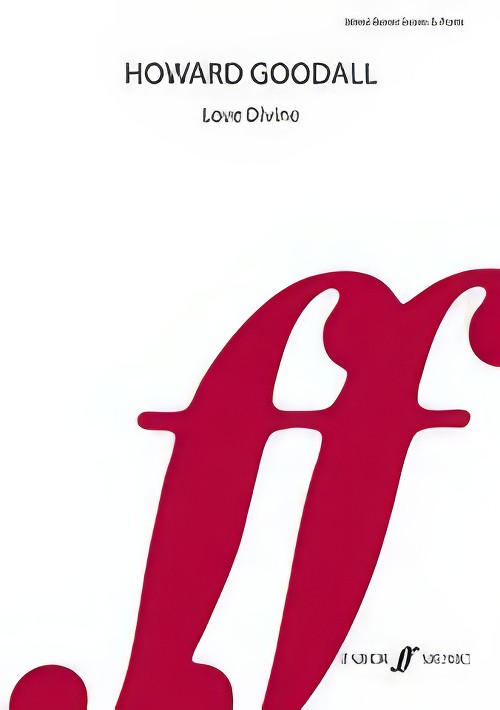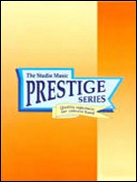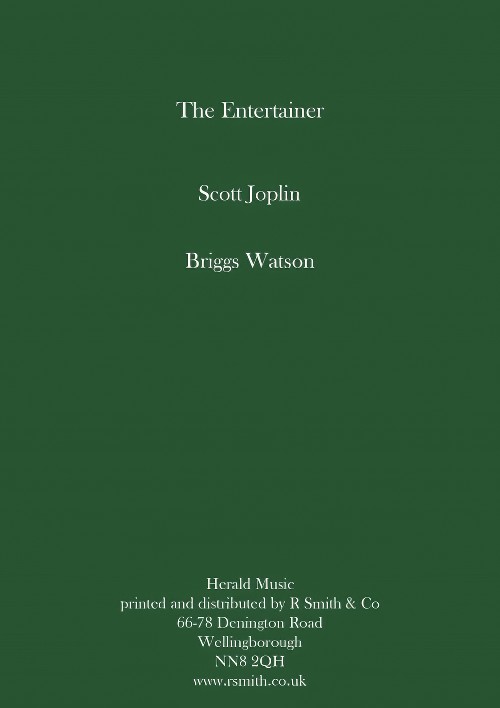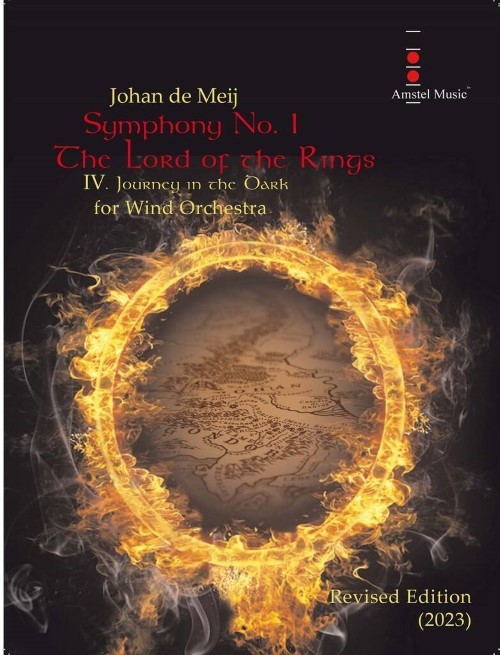Results
-
 £61.95
£61.95CONCERTINO (Opus 26) (Clarinet/Concert Band) - Weber, Carl Maria Von - Frank, Marcel
Concert Band American Grade 3/Clarinet Solo American Grade 5. Duration 9:00. Also available with piano accompaniment.
Estimated dispatch 7-14 working days
-
 £39.99
£39.99Love Divine (Concert Band - Score and Parts) - Goodall, Howard - Wheeler, Alastair
One of Howard Goodall's most popular choral settings, Love Divine has been skilfully arranged for wind band by Alastair Wheeler, with the approval of the composer. This version is based on the setting with piano and strings and can be performed as a self-standing concert work or as an accompaniment for performance by a large choir. Duration: 8 minutes.
Estimated dispatch 7-14 working days
-
£68.99
Mountain March (Concert Band - Score and Parts)
A fanfare introduces This festive march is introduced by a lively fanfare which leads into the first, playful, melodic line which features a regular dynamic alternation and a light syncopated rhythm. After the traditional bass solo, the first theme returns. The initial theme, performed by piano and cantabile trio, later sounds in a jubilant forte with various figurations in the higher woodwinds. The fine work Mountain March is suitable as a street march, but will also gain much appreciation on the concert platform. 04:00
Estimated dispatch 7-14 working days
-
£174.99
Premier Concerto (Concert Band - Score and Parts)
Paul Gilson's Premier Concerto from 1902 is one of the first compositions for saxophone. The Belgian composer used all the typical characteristics of the instrument, such as its powerful tone, suppleness, virtuosity and warm sound. Tom de Haes has created a reconstruction based on the partly missing original version for concert band, the piano score and the version for symphony orchestra. 16:25
Estimated dispatch 7-14 working days
-
 £44.95
£44.95TRAUMEREI (Simply Classics Concert Band) - Schumann, Robert - Turnbull, Kit
Traumerei (or Reverie) is the seventh movement from Schumann's Kinderszenen (Scenes from Childhood). The suite was written for piano in 1838 as a musical recollection of his childhood. Originally containing 30 movements the final published edition contained just 13. The movement is just right for that quiet spot in any concert programme. American Grade 2. Duration 2:26
Estimated dispatch 7-14 working days
-
 £18.95
£18.95TWO-PART INVENTION (Euphonium Duet/Concert Band) (Prestige Concert Band Extra Score) - Sparke, Philip
Extra Score. for Bob and Nick Childs. Duration: 5:30 Euphonium BC & TC parts included. American Grade 6 (Soloists)/4 (Band) Euphonium Duet & Piano Accompaniment and Euphonium Duet & Brass Band editions is also available.
Estimated dispatch 7-14 working days
-
 £94.95
£94.95TWO-PART INVENTION (Euphonium Duet/Concert Band) (Prestige Concert Band Set) - Sparke, Philip
Score and Parts. for Bob and Nick Childs. Duration: 5:30 Euphonium BC & TC parts included. American Grade 6 (Soloists)/4 (Band) Euphonium Duet & Piano Accompaniment and Euphonium Duet & Brass Band editions is also available.
Estimated dispatch 7-14 working days
-
 £19.95
£19.95The Entertainer (Concert Band - Score and Parts) - Joplin, Scott - Briggs Watson, Bryan
This popular piano rag, written by Scott Joplin and used in the film The Sting, has been arranged for Concert Band. March Card size parts
Estimated dispatch 7-14 working days
-
 £79.00
£79.00Poem for Flute and Concert Band - Charles Tomlinson Griffes
Poem, originally for flute and piano, composed by Charles Tomlinson Griffes (1884 - 1920). This wind ensemble arrangement is designed to make this composition playable by most high school clarinetists and instrumentalists. Please note that the B-flat instruments are written with a key signature of 3 flats, not one of six sharps. This was done to keep the clarinets playing in a familiar key with ample accidentals to ease the reading of the parts. The bass clarinets and the bassoons play identical parts and can be substituted or augmented as desired. Though a minimum of two double bassists is ideal, an alternate part for tuba is also provided (also divisi).
Estimated dispatch 7-14 working days
-
 £132.00
£132.00Journey in the Dark (from Symphony No.1: The Lord of the Rings) (Concert Band - Score and Parts) - De Meij, Johan
Revised 2023 editionJohan de Meij's first symphony The Lord of the Rings is based on the trilogy of that name by J.R.R. Tolkien. This book has fascinated many millions of readers since its publication in 1955. The symphony consists of five separate movements, each illustrating a personage or an important episode from the book. The fourth movement describes the laborious journey of the Fellowship of the Ring, headed by the wizard Gandalf, through the dark tunnels of the Mines of Moria. The slow walking cadenza and the fear are clearly audible in the monotonous rhythm of the low brass, piano and percussion. After a wild pursuit by hostile creatures, the Orks, Gandalf is engaged in battle witha horrible monster, the Balrog, and crashes from the subterranean bridge of Khazad-D m in a fathomless abyss. To the melancholy tones of a Marcia funebre, the bewildered Companions trudge on, looking for the only way out of the Mines, the East Gate of Moria.Duration: 9.00
Estimated dispatch 7-14 working days
